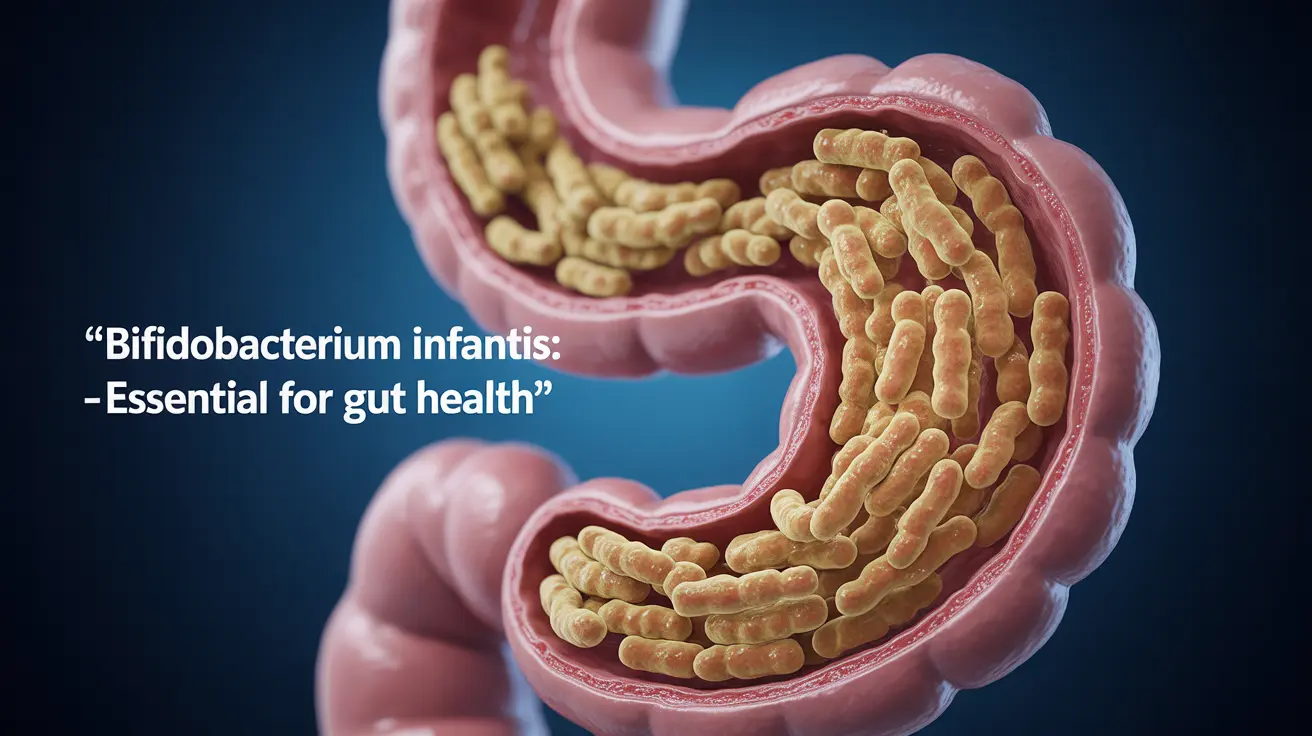Bifidobacterium infantis is a beneficial bacteria that plays a vital role in infant gut health and immune system development. This naturally occurring probiotic is one of the most abundant and important microorganisms found in the intestines of healthy breastfed infants, helping to establish a strong foundation for lifelong health.
Understanding the significance of Bifidobacterium infantis and its impact on infant well-being has become increasingly important for parents and healthcare providers alike. This comprehensive guide explores how this remarkable probiotic supports infant health and development.
The Role of Bifidobacterium Infantis in Infant Gut Health
Bifidobacterium infantis serves as a cornerstone of infant gut microbiota development. This beneficial bacteria helps break down complex sugars found in breast milk, particularly human milk oligosaccharides (HMOs), which would otherwise be indigestible to infants. Through this process, B. infantis produces vital nutrients and compounds that support infant growth and development.
- Maintain optimal pH levels in the intestines
- Support proper nutrient absorption
- Promote regular bowel movements
- Reduce episodes of infant colic
- Support healthy weight gain
Immune System Development and Protection
One of the most significant benefits of Bifidobacterium infantis is its role in developing a robust immune system. This probiotic helps train the infant immune system to respond appropriately to various challenges while maintaining balance in immune responses.
- Strengthening the intestinal barrier
- Reducing harmful inflammation
- Promoting the production of protective antibodies
- Supporting the development of immune cells
- Helping prevent allergic responses
Prevention of Infections and Inflammatory Conditions
Research has shown that Bifidobacterium infantis helps protect infants from various infections and inflammatory conditions. The probiotic creates an environment in the gut that makes it difficult for harmful bacteria to thrive, effectively reducing the risk of various health issues.
Protection Against Necrotizing Enterocolitis
Premature infants are particularly vulnerable to necrotizing enterocolitis (NEC), a serious condition affecting the intestines. Studies have demonstrated that B. infantis supplementation can significantly reduce the risk of NEC in premature infants by promoting gut barrier function and reducing inflammation.
Digestive Health Benefits
Beyond its protective effects, Bifidobacterium infantis plays a crucial role in supporting healthy digestion in infants and children. The probiotic helps manage various digestive issues, including:
- Reducing symptoms of colic
- Alleviating constipation
- Improving symptoms of irritable bowel syndrome
- Reducing instances of diarrhea
- Supporting regular bowel movements
Safe Supplementation and Administration
While Bifidobacterium infantis naturally colonizes the infant gut through breastfeeding, some situations may require supplementation. When considering supplementation, it's essential to:
- Consult with a healthcare provider before starting any probiotic regimen
- Choose age-appropriate probiotic formulations
- Follow recommended dosage guidelines
- Monitor for any unusual reactions
- Maintain proper storage conditions for probiotic products
Frequently Asked Questions
What are the benefits of Bifidobacterium infantis for infant gut health and immune development?
Bifidobacterium infantis helps establish a healthy gut microbiome, supports proper digestion of breast milk components, strengthens the immune system, and promotes optimal nutrient absorption. It also helps develop and maintain the intestinal barrier, reducing the risk of infections and inflammatory conditions.How does Bifidobacterium infantis help prevent infections and inflammation in babies?
It creates an acidic environment in the gut that inhibits harmful bacteria growth, strengthens the intestinal barrier, and helps regulate immune responses. This probiotic also produces compounds that support the body's natural defense mechanisms against pathogens.Can Bifidobacterium infantis supplementation reduce the risk of necrotizing enterocolitis in premature infants?
Yes, research has shown that B. infantis supplementation can significantly reduce the risk of necrotizing enterocolitis in premature infants by strengthening the gut barrier, reducing inflammation, and promoting healthy intestinal development.How does Bifidobacterium infantis improve digestive issues like irritable bowel syndrome in children?
B. infantis helps regulate gut motility, reduce inflammation, and maintain healthy gut barrier function. These actions can help alleviate symptoms of IBS, including abdominal pain, bloating, and irregular bowel movements.Is it safe to give Bifidobacterium infantis probiotics to infants, and what are the recommended ways to supplement it?
Yes, B. infantis supplementation is generally safe for infants when used as directed. It's important to consult with a healthcare provider for proper dosing and choose age-appropriate probiotic formulations. The most common methods include drops, powder forms that can be mixed with breast milk or formula, and specialized infant probiotic supplements.




